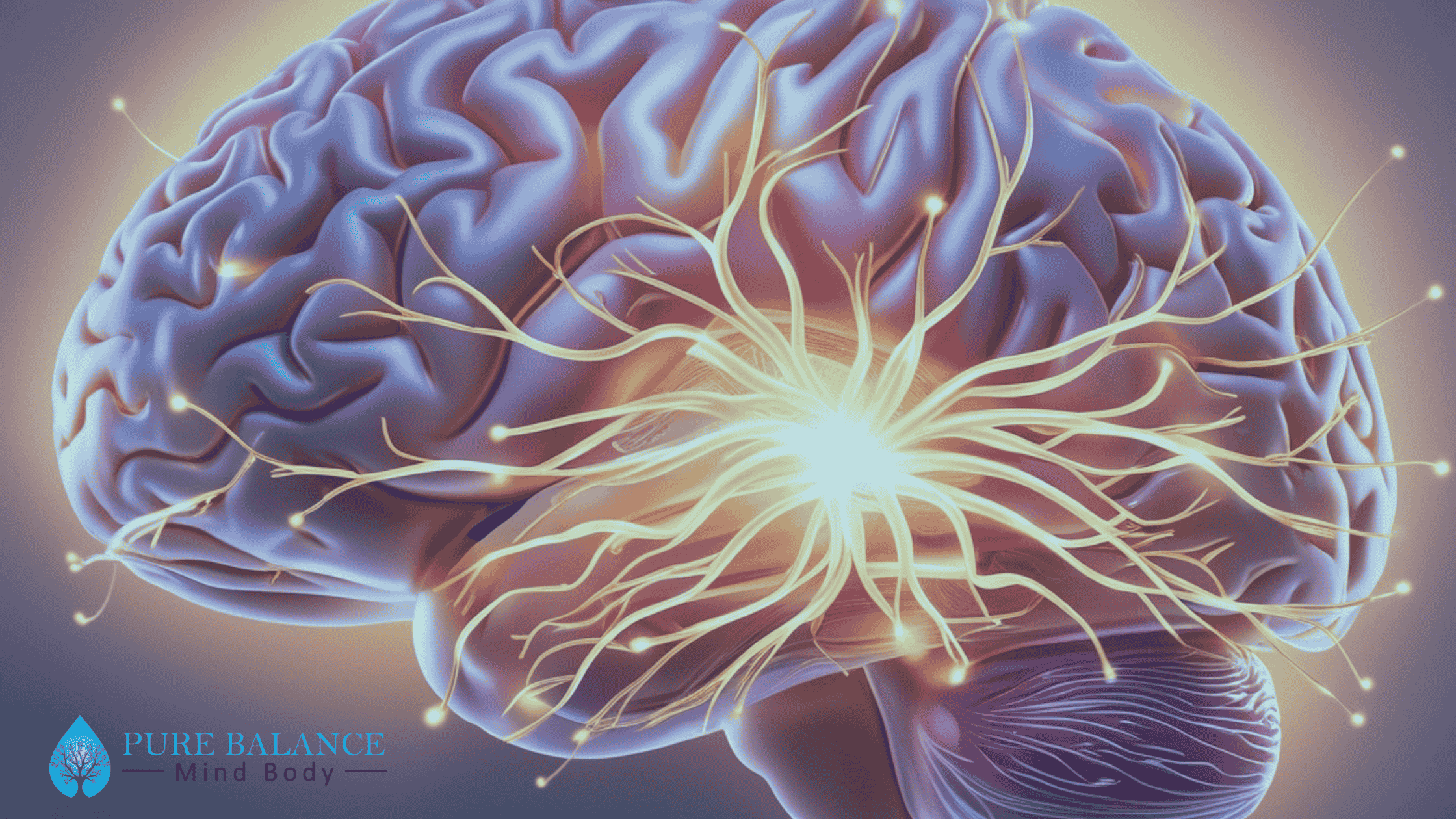Depression, a debilitating condition that affects millions worldwide, often leaves individuals feeling trapped in an endless cycle of despair. While traditional treatments like talk therapy and antidepressants have provided some relief, they don’t work for everyone. Enter Spravato — a groundbreaking treatment that is transforming the landscape of depression management. Administered as a nasal spray, this innovative therapy harnesses the power of ketamine to provide rapid relief from depressive symptoms, often within hours. In a world where waiting for help can feel agonizingly slow, Spravato offers a beacon of hope for those who have struggled to find effective solutions. This article dives into how Spravato is changing the game, the science behind its efficacy, and the stories of those who have found newfound relief. Discover how this revolutionary approach to treating depression is unlocking doors to a brighter, more hopeful future.
Understanding Depression: A Brief Overview
 Depression is more than just a fleeting feeling of sadness or a temporary response to life’s challenges. It is a complex mental health disorder characterized by persistent feelings of sadness, hopelessness, and a lack of interest or pleasure in activities. This condition can affect every aspect of a person’s life, from their physical health and daily functioning to their relationships and ability to work. According to the World Health Organization (WHO), over 264 million people worldwide suffer from depression, making it one of the leading causes of disability.
Depression is more than just a fleeting feeling of sadness or a temporary response to life’s challenges. It is a complex mental health disorder characterized by persistent feelings of sadness, hopelessness, and a lack of interest or pleasure in activities. This condition can affect every aspect of a person’s life, from their physical health and daily functioning to their relationships and ability to work. According to the World Health Organization (WHO), over 264 million people worldwide suffer from depression, making it one of the leading causes of disability.
Depression can manifest in various forms, including major depressive disorder (MDD), persistent depressive disorder (dysthymia), bipolar disorder, and seasonal affective disorder (SAD). Each type has its own set of symptoms, severity, and duration. Common symptoms include changes in appetite and sleep patterns, fatigue, difficulty concentrating, and thoughts of death or suicide. The exact causes of depression are not fully understood, but it is believed to result from a combination of genetic, biological, environmental, and psychological factors.
Traditional treatments for depression typically involve a combination of psychotherapy (such as cognitive-behavioral therapy or interpersonal therapy) and antidepressant medications (such as selective serotonin reuptake inhibitors or serotonin and norepinephrine reuptake inhibitors). While these treatments can be effective for many individuals, they do not work for everyone. Some people may experience only partial relief from their symptoms, while others may not respond to treatment at all. Additionally, antidepressants can take several weeks to start working, which can be an agonizing wait for those in desperate need of relief.
What is Spravato?
Spravato, also known by its generic name esketamine, is a groundbreaking treatment for depression that has been making waves in the mental health community. Approved by the U.S. Food and Drug Administration (FDA) in March 2019, Spravato is a nasal spray designed to provide rapid relief from depressive symptoms. It is specifically approved for use in adults with treatment-resistant depression (TRD), meaning those who have not responded adequately to at least two different antidepressant treatments.
Unlike traditional antidepressants that primarily target the brain’s serotonin, norepinephrine, and dopamine systems, Spravato works on a different neurotransmitter system altogether. It is derived from ketamine, a medication that has been used for decades as an anesthetic and, more recently, as an off-label treatment for severe depression. Esketamine, the active ingredient in Spravato, is a more potent form of ketamine and is administered as a nasal spray, making it easier to use and more accessible for patients.
Spravato is used in conjunction with an oral antidepressant, which helps to ensure a comprehensive approach to treating depression. The nasal spray is typically administered under the supervision of a healthcare provider in a certified medical setting, such as a clinic or hospital. This ensures that patients are monitored for any potential side effects and receive the necessary support during treatment. The combination of rapid onset of action and the unique mechanism of action makes Spravato a promising option for those who have struggled to find relief with traditional treatments.
The Science Behind Spravato: How It Works
The mechanism of action of Spravato is fundamentally different from that of traditional antidepressants. While most antidepressants work by increasing the levels of neurotransmitters like serotonin and norepinephrine in the brain, Spravato targets the brain’s glutamate system. Glutamate is the most abundant excitatory neurotransmitter in the brain and plays a crucial role in synaptic plasticity, which is the ability of synapses (the connections between neurons) to strengthen or weaken over time in response to activity.
Esketamine, the active ingredient in Spravato, is an N-methyl-D-aspartate (NMDA) receptor antagonist. By blocking the NMDA receptor, esketamine increases the release of glutamate in the brain. This, in turn, activates another type of receptor called the alpha-amino-3-hydroxy-5-methyl-4-isoxazolepropionic acid (AMPA) receptor. The activation of AMPA receptors leads to a cascade of events that ultimately enhance synaptic plasticity and promote the formation of new neural connections. This process is thought to contribute to the rapid antidepressant effects of Spravato.
One of the most remarkable aspects of Spravato’s mechanism of action is the speed at which it works. Traditional antidepressants can take several weeks to start producing noticeable effects, which can be a significant drawback for individuals in acute distress. In contrast, many patients report experiencing relief from depressive symptoms within hours to days of receiving Spravato. This rapid onset of action can be life-changing for those who have been struggling with severe depression and are in urgent need of relief.
In addition to its rapid effects, Spravato’s unique mechanism of action also offers hope for individuals who have not responded to traditional treatments. By targeting a different neurotransmitter system, Spravato provides an alternative pathway for alleviating depressive symptoms. This can be particularly beneficial for those with treatment-resistant depression, who may have exhausted other options and are seeking new avenues for relief.
Benefits of Spravato Compared to Traditional Treatments
One of the most significant benefits of Spravato is its rapid onset of action. Unlike traditional antidepressants, which can take several weeks to start working, Spravato can provide relief from depressive symptoms within hours to days. This is particularly important for individuals in acute distress who cannot afford to wait for help. The ability to experience rapid relief can make a substantial difference in a person’s quality of life and overall prognosis.
Another key advantage of Spravato is its unique mechanism of action. By targeting the brain’s glutamate system, Spravato offers a new approach to treating depression that is distinct from traditional antidepressants. This is especially valuable for individuals with treatment-resistant depression, who have not responded adequately to other treatments. For these patients, Spravato provides an alternative pathway for relief and offers hope where other treatments have failed.
Spravato is also administered as a nasal spray, which offers several practical benefits. The nasal spray formulation allows for direct delivery of the medication to the brain, bypassing the digestive system and reducing the risk of gastrointestinal side effects. Additionally, the nasal spray is easy to use and can be administered in a clinical setting under the supervision of a healthcare provider. This ensures that patients receive the appropriate dosage and are monitored for any potential side effects.
While Spravato is not a cure for depression, it can be an essential component of a comprehensive treatment plan. The combination of rapid onset of action, unique mechanism of action, and ease of administration makes Spravato a valuable option for individuals with treatment-resistant depression. By offering a new pathway for relief, Spravato is helping to transform the landscape of depression treatment and providing hope for those who have struggled to find effective solutions.
Who Can Benefit from Spravato?
Spravato is specifically approved for use in adults with treatment-resistant depression (TRD). This means that individuals who have not responded adequately to at least two different antidepressant treatments may be candidates for Spravato. Treatment-resistant depression is a particularly challenging condition to manage, as traditional treatments often fail to provide sufficient relief. For these individuals, Spravato offers a new and promising option for alleviating depressive symptoms.
In addition to individuals with treatment-resistant depression, Spravato may also be beneficial for those with major depressive disorder (MDD) who are experiencing acute suicidal ideation or behavior. The rapid onset of action of Spravato can make a significant difference in these situations, providing much-needed relief during a critical time. The ability to quickly reduce depressive symptoms and suicidal thoughts can help stabilize individuals and provide a window of opportunity for further therapeutic interventions.
It is important to note that Spravato is used in conjunction with an oral antidepressant, which helps to ensure a comprehensive approach to treating depression. This combination of treatments can enhance the overall effectiveness and provide more robust relief from depressive symptoms. Patients considering Spravato should work closely with their healthcare provider to determine if it is the right option for their specific needs and circumstances.
While Spravato offers hope for many individuals with depression, it is not suitable for everyone. Patients with a history of substance abuse, certain medical conditions, or those who are pregnant or breastfeeding may not be candidates for Spravato. A thorough evaluation by a healthcare provider is essential to determine if Spravato is a safe and appropriate treatment option. By carefully considering each patient’s unique situation, healthcare providers can help identify those who are most likely to benefit from this innovative therapy.
Is Spravato Right for You?
You may be a candidate for Spravato if:
- You’ve tried 2 or more antidepressants with limited results
- You’re experiencing suicidal thoughts despite ongoing treatment
- You’re looking for a fast-acting solution under clinical supervision
Not recommended for:
- Patients with active substance abuse
- Pregnant or breastfeeding individuals
- Those with uncontrolled hypertension or cardiovascular risk
The Administration Process: What to Expect
The administration of Spravato is a carefully supervised process that takes place in a certified medical setting, such as a clinic or hospital. This ensures that patients receive the appropriate dosage and are monitored for any potential side effects. The process begins with a thorough evaluation by a healthcare provider to determine if Spravato is a suitable treatment option. If approved, the patient will be scheduled for their first session.
On the day of administration, the patient arrives at the medical facility and is greeted by a healthcare provider who will guide them through the process. The patient is seated in a comfortable, private room where they will remain for the duration of the session. The nasal spray is administered in a series of doses, with the patient self-administering each dose under the supervision of the healthcare provider. The entire administration process typically takes about two hours.
After receiving the nasal spray, the patient is monitored for at least two hours to ensure their safety and well-being. During this time, the healthcare provider will check for any signs of adverse reactions and provide support as needed. Patients are advised not to drive, operate machinery, or engage in any activities that require full alertness for the rest of the day, as Spravato can cause temporary side effects such as dizziness, dissociation, and sedation.
The administration of Spravato typically follows a specific schedule, with sessions becoming less frequent over time. The initial phase of treatment involves twice-weekly sessions for the first four weeks, followed by weekly sessions for the next four weeks. After the initial eight-week period, the frequency of sessions may be reduced to once every two weeks or as needed, based on the patient’s response to treatment and the guidance of their healthcare provider. This structured approach helps to ensure that patients receive the full therapeutic benefit of Spravato while minimizing the risk of side effects.
Potential Side Effects and Risks of Spravato
As with any medication, Spravato comes with the potential for side effects and risks. It is important for patients and healthcare providers to be aware of these potential issues to ensure safe and effective use of the treatment. The most common side effects of Spravato include dizziness, nausea, dissociation (a feeling of being disconnected from oneself or one’s surroundings), sedation, headache, and increased blood pressure. These side effects are generally mild to moderate in severity and tend to occur shortly after administration, often resolving within a few hours.
Dissociation and sedation are notable side effects that can affect a patient’s ability to engage in daily activities. For this reason, patients are advised not to drive, operate machinery, or perform tasks that require full mental alertness for the rest of the day after receiving Spravato. It is also recommended that patients have a trusted friend or family member accompany them to and from their treatment sessions to ensure their safety.
While rare, there are more serious risks associated with Spravato, including the potential for abuse and misuse. Esketamine, the active ingredient in Spravato, is a form of ketamine, which has a history of being used recreationally for its dissociative and hallucinogenic effects. To mitigate the risk of abuse, Spravato is only available through a restricted distribution program called the Spravato REMS (Risk Evaluation and Mitigation Strategy) program. This program ensures that Spravato is only administered in certified medical settings under the supervision of a healthcare provider.
Patients with a history of substance abuse or certain medical conditions may not be suitable candidates for Spravato. Additionally, Spravato is not recommended for use during pregnancy or breastfeeding due to the lack of sufficient data on its safety in these populations. A thorough evaluation by a healthcare provider is essential to determine if Spravato is a safe and appropriate treatment option. By carefully considering each patient’s unique situation and monitoring for potential side effects, healthcare providers can help ensure the safe and effective use of Spravato.
Success Stories: Real-Life Experiences with Spravato
The rapid and transformative effects of Spravato have been life-changing for many individuals struggling with treatment-resistant depression. One such success story is that of Emily, a 34-year-old woman who had battled severe depression for over a decade. Despite trying numerous antidepressants and undergoing various forms of therapy, Emily’s condition remained unmanageable, leaving her feeling hopeless and isolated. After being introduced to Spravato by her psychiatrist, Emily experienced a remarkable turnaround. Within hours of her first session, she felt a noticeable lift in her mood, and over the following weeks, her depressive symptoms continued to improve. For the first time in years, Emily felt a sense of hope and was able to re-engage with her life and loved ones.
 John, a 45-year-old man with a long history of treatment-resistant depression, also found relief with Spravato. John’s depression had severely impacted his ability to work and maintain relationships, leading to a cycle of despair and frustration. Traditional antidepressants had little effect, and John began to lose hope that he would ever find relief. After starting Spravato, John noticed a significant reduction in his depressive symptoms within days. The rapid onset of action helped stabilize his mood and provided the foundation for him to rebuild his life. John’s experience with Spravato has been transformative, allowing him to return to work, reconnect with friends and family, and regain a sense of purpose.
John, a 45-year-old man with a long history of treatment-resistant depression, also found relief with Spravato. John’s depression had severely impacted his ability to work and maintain relationships, leading to a cycle of despair and frustration. Traditional antidepressants had little effect, and John began to lose hope that he would ever find relief. After starting Spravato, John noticed a significant reduction in his depressive symptoms within days. The rapid onset of action helped stabilize his mood and provided the foundation for him to rebuild his life. John’s experience with Spravato has been transformative, allowing him to return to work, reconnect with friends and family, and regain a sense of purpose.
Another inspiring story is that of Maria, a 29-year-old woman who had struggled with major depressive disorder and suicidal ideation. Maria’s condition had reached a critical point, and she was in urgent need of relief. Her healthcare provider recommended Spravato as a potential option, and Maria began treatment with cautious optimism. The effects of Spravato were swift and profound, providing Maria with immediate relief from her suicidal thoughts and depressive symptoms. The rapid response allowed her to stabilize and engage in further therapeutic interventions, ultimately leading to a significant improvement in her overall mental health.
These real-life experiences highlight the transformative potential of Spravato for individuals with treatment-resistant depression. While not every patient may experience the same level of success, the rapid onset of action and unique mechanism of action offer new hope for those who have struggled to find effective solutions. By providing a new pathway for relief, Spravato is helping to change the lives of individuals with depression and offering a brighter, more hopeful future.
📞 Call us today at (479) 633‑7052
📍 Serving Rogers, Fayetteville, and the greater NWA region.
The Future of Depression Treatment: Innovations and Research
The approval of Spravato represents a significant milestone in the field of depression treatment, but it is just one piece of the puzzle. Ongoing research and innovation are essential to further advance our understanding of depression and develop new and more effective treatments. One area of active research is the exploration of other compounds that target the glutamate system, similar to Spravato. Researchers are investigating different NMDA receptor antagonists and modulators to determine their potential efficacy and safety in treating depression.
Another promising area of research is the use of psychedelic-assisted therapy. Substances such as psilocybin (the active ingredient in magic mushrooms) and MDMA (commonly known as ecstasy) are being studied for their potential to alleviate depressive symptoms and other mental health conditions. Early clinical trials have shown promising results, suggesting that these compounds, when used in a controlled and therapeutic setting, may offer new avenues for treating depression. The potential benefits of psychedelic-assisted therapy include not only rapid relief from symptoms but also long-lasting effects that can promote sustained improvements in mental health.
Advancements in neuroimaging and biomarker research are also helping to enhance our understanding of depression and improve treatment outcomes. By identifying specific biomarkers associated with depression and treatment response, researchers can develop more personalized and targeted therapies. This precision medicine approach aims to tailor treatments to the individual’s unique biological and genetic profile, increasing the likelihood of successful outcomes and minimizing the risk of side effects.
The integration of digital health technologies, such as mobile apps and wearable devices, is also playing a growing role in depression treatment. These technologies can help monitor patients’ symptoms, provide real-time feedback, and support adherence to treatment plans. Additionally, digital health tools can facilitate remote consultations and telehealth services, making mental health care more accessible to individuals who may have difficulty accessing traditional in-person services.
While there is still much to learn and discover, the future of depression treatment is filled with promise. The continued exploration of novel therapies, combined with advancements in technology and personalized medicine, holds the potential to revolutionize the way we understand and treat depression. By embracing innovation and research, we can unlock new pathways for relief and improve the lives of millions of individuals affected by this debilitating condition.
Conclusion: Embracing New Hope in Mental Health Treatment
Depression is a complex and challenging condition that affects millions of people worldwide. Traditional treatments, while effective for many, do not work for everyone, leaving a significant number of individuals struggling to find relief. Spravato, with its rapid onset of action and unique mechanism of action, offers a new and promising option for those with treatment-resistant depression. By targeting the brain’s glutamate system, Spravato provides an alternative pathway for alleviating depressive symptoms and offers hope to those who have not responded to other treatments.
The success stories of individuals who have found relief with Spravato highlight the transformative potential of this innovative therapy. While Spravato is not suitable for everyone and comes with potential side effects and risks, it represents a significant advancement in the field of depression treatment. The careful supervision of healthcare providers and the structured administration process help ensure the safe and effective use of Spravato.
Looking to the future, ongoing research and innovation hold the promise of further advancements in depression treatment. The exploration of new compounds, the potential of psychedelic-assisted therapy, advancements in neuroimaging and biomarker research, and the integration of digital health technologies are all contributing to a brighter future for individuals with depression. By embracing these innovations and continuing to push the boundaries of our understanding, we can unlock new pathways for relief and improve the lives of those affected by this debilitating condition.
In conclusion, Spravato is revolutionizing depression treatment by offering rapid relief and a new approach to managing depressive symptoms. For individuals with treatment-resistant depression, Spravato provides a beacon of hope and a pathway to a brighter, more hopeful future. As we continue to advance our understanding and develop new treatments, we can provide even greater support and relief to those who need it most. Embracing new hope in mental health treatment is essential to unlocking a future where individuals with depression can thrive and live fulfilling lives.
Ready to explore if Spravato is right for you?
At Pure Balance – Mind Body, we offer Spravato treatment in a safe, monitored environment for those struggling with treatment-resistant depression.
📞 Call us today at (479) 633‑7052
📍 Serving Rogers, Fayetteville, and the greater NWA region.
 Skip to main content
Skip to main content



